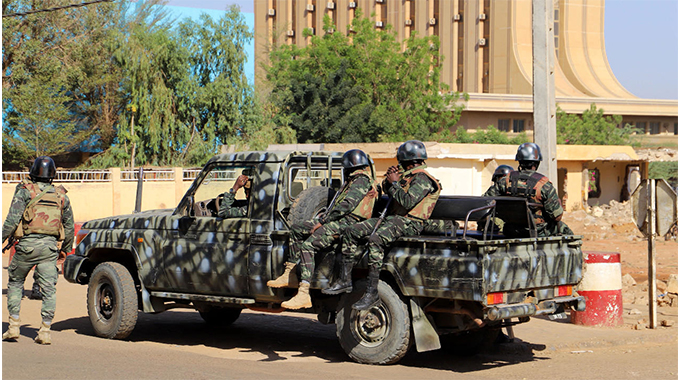More than 5 000 find refuge after ISIL attack in Mozambique

More than 5 000 people fleeing an attack by a group linked to ISIL (ISIS) have made their way to safety elsewhere in northern Mozambique, while a small group of victims arrived by boat in neighbouring Tanzania.
Armed fighters raided the coastal northern Mozambican town of Palma on March 24, ransacking buildings and beheading residents as thousands fled into the surrounding forest.
A United Nations spokesman said so far 5 300 displaced people had been registered in different districts of Cabo Delgado province, home since 2017 to a simmering insurrection.
Residents with family in Palma anxiously scoured incoming survivors for familiar faces. They milled around the port’s barbed-wire walls and sat against nearby buildings.
“We don’t know if our relatives are on the boats that are coming or not. But we are here, we are not losing hope,” Muza Momadi told AFP news agency as she waited for her mother and brother.
Since Tuesday more than 300 victims of the attack arrived in provincial capital Pemba by plane and boat, a senior humanitarian official based in Mozambique told Reuters news agency.
boat carrying another 1 000 people, including some injured, was expected to arrive in Pemba late on Wednesday after its departure from a gas project site near Palma was delayed, three people briefed on the rescue operation said.
Armed group fighters hit the coastal town of Palma, adjacent to gas projects worth $60bn, with a three-pronged attack last Wednesday.
Fighting continued as recently as Tuesday, security sources involved in rescue efforts and the UN said.
Most communications in the town were cut and it is not possible to independently verify the accounts from Palma.
In the village of Kilambo across the border in Tanzania, another boat with 45 people on board docked on Tuesday.
Others seeking shelter in Tanzania failed to cross the border because of a difficult river crossing, UN humanitarian officials said.
The attack likely displaced tens of thousands of people, aid groups said, with people scattering into dense forests or attempting escape by sea.
Mozambique’s government has confirmed dozens of deaths, including at least seven killed when fighters ambushed a convoy of vehicles trying to escape a besieged hotel. Witnesses have described bodies in the streets, some beheaded.
President Filipe Nyusi said at an event unrelated to the Palma attack on Wednesday the government will approach the enemy with “forcefulness”, describing the attack as not the biggest the country had seen.
ISIL claimed the attack on Monday via its Amaq website.
The Soufan Center, a US-based security think-tank, said the latest attack could prompt greater overseas intervention in Mozambique, as the government was unable to contain the violence.
US army special forces are already in Mozambique, and French troops have been monitoring the escalating situation from the nearby French island of Mayotte, it noted.
Portugal is preparing to send a small contingent of soldiers to help train armed forces in Cabo Delgado next month, state news agency Lusa reported.
Meanwhile, United Nations experts have expressed alarm over reports of “grave human rights abuses” by Russian mercenaries in the Central African Republic, where they have supported the embattled government’s military.
The alleged abuses identified by the Working Group on mercenaries include mass summary executions, arbitrary detentions, torture, forced disappearances, forced displacement of civilians, indiscriminate targeting of civilian facilities and attacks on humanitarian workers.
“The experts have received, and continue to receive, reports of grave human rights abuses and violations of international humanitarian law, attributable to the private military personnel operating jointly with CAR’s armed forces and in some instances UN peacekeepers,” the UN experts said in a statement yesterday, naming Russian companies.
“Unacceptably, there seem to be no investigations and no accountability for these abuses,” the experts said.
The Russian military, which supervises the presence of the contractors in the CAR, and CAR’s government spokesman did not immediately comment.
Russia first sent security contractors to the CAR in 2018. It stepped up its support late last year to help the government fend off a rebel advance launched before the December 27 presidential election.-Al Jazeera.












Comments